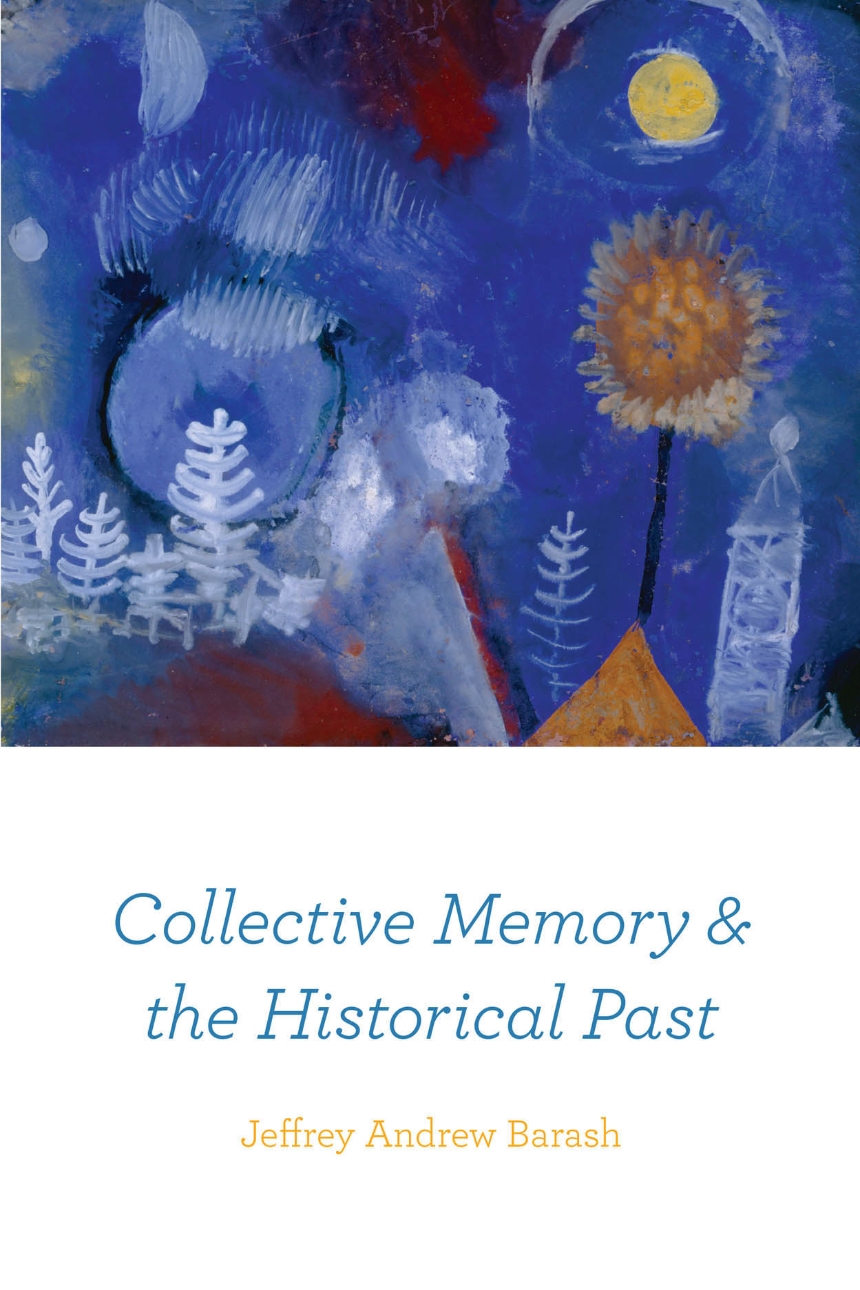Collective Memory and the Historical Past
There is one critical way we honor great tragedies: by never forgetting. Collective remembrance is as old as human society itself, serving as an important source of social cohesion, yet as Jeffrey Andrew Barash shows in this book, it has served novel roles in a modern era otherwise characterized by discontinuity and dislocation. Drawing on recent theoretical explorations of collective memory, he elaborates an important new philosophical basis for it, one that unveils profound limitations to its scope in relation to the historical past.
Crucial to Barash’s analysis is a look at the radical transformations that symbolic configurations of collective memory have undergone with the rise of new technologies of mass communication. He provocatively demonstrates how such technologies’ capacity to simulate direct experience—especially via the image—actually makes more palpable collective memory’s limitations and the opacity of the historical past, which always lies beyond the reach of living memory. Thwarting skepticism, however, he eventually looks to literature—specifically writers such as Walter Scott, Marcel Proust, and W. G. Sebald—to uncover subtle nuances of temporality that might offer inconspicuous emblems of a past historical reality.
Crucial to Barash’s analysis is a look at the radical transformations that symbolic configurations of collective memory have undergone with the rise of new technologies of mass communication. He provocatively demonstrates how such technologies’ capacity to simulate direct experience—especially via the image—actually makes more palpable collective memory’s limitations and the opacity of the historical past, which always lies beyond the reach of living memory. Thwarting skepticism, however, he eventually looks to literature—specifically writers such as Walter Scott, Marcel Proust, and W. G. Sebald—to uncover subtle nuances of temporality that might offer inconspicuous emblems of a past historical reality.
280 pages | 15 halftones | 6 x 9 | © 2016
History: History of Ideas
Philosophy: General Philosophy, Philosophy of Society
Reviews
Table of Contents
Introduction
The Sources of Memory
Part 1 Symbolic Embodiment, Imagination, and the “Place” of Collective Memory
1 Is Collective Memory a Figment of the Imagination? The Scope of Memory in the Public Sphere
2 Analyzing Collective Memory
3 Thresholds of Personal Identity and Public Experience
Excursus Critical Reflections: The Contemporary Theories of Ricœur, Edelman, and Nora
Part 2 Time, Collective Memory, and the Historical Past
4 Temporal Articulations
5 Virtual Experience, the Mass Media, and the Configuration of the Public Sphere
6 The Contextualized Past: Collective Memory and Historical Understanding
Conclusion The Province of Collective Memory and Its Theoretical Promise
Notes
Bibliography
Index
The Sources of Memory
Part 1 Symbolic Embodiment, Imagination, and the “Place” of Collective Memory
1 Is Collective Memory a Figment of the Imagination? The Scope of Memory in the Public Sphere
2 Analyzing Collective Memory
3 Thresholds of Personal Identity and Public Experience
Excursus Critical Reflections: The Contemporary Theories of Ricœur, Edelman, and Nora
Part 2 Time, Collective Memory, and the Historical Past
4 Temporal Articulations
5 Virtual Experience, the Mass Media, and the Configuration of the Public Sphere
6 The Contextualized Past: Collective Memory and Historical Understanding
Conclusion The Province of Collective Memory and Its Theoretical Promise
Notes
Bibliography
Index
